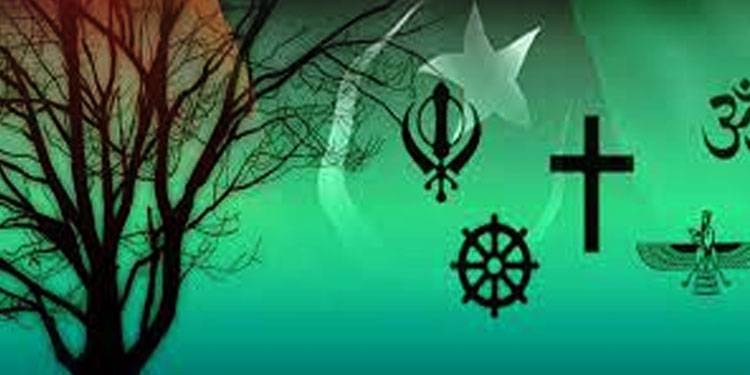By: Waqas Qamar Bhatti
As Pakistan prepares to celebrate its 78th Independence Day on August 14, renewed attention is being drawn to the status and contributions of religious minorities—particularly in light of the symbolic significance of August 11, observed annually as National Minorities Day.
Flag’s Symbolism Reflects National Vision:
Pakistan’s national flag, with its green and white colors, serves as a powerful representation of the country’s foundational ideals. While the green represents the Muslim majority, the white stripe stands for religious minorities—an emblem of equality, inclusion, and national unity.
This symbolism echoes the vision of the country’s founder, Quaid-e-Azam Muhammad Ali Jinnah, who on August 11, 1947, addressed the Constituent Assembly and made a historic commitment to religious freedom.
“You are free; you are free to go to your temples, you are free to go to your mosques or to any other place of worship,” Jinnah said, setting the tone for a state envisioned to uphold pluralism and religious liberty.
August 11: A Day of Recognition
In 2009, the Government of Pakistan officially designated August 11 as National Minorities Day to acknowledge the sacrifices and services of minority communities in the country’s creation and development. The day is marked by events, seminars, and official messages reaffirming that minorities are an integral part of Pakistan’s national fabric.
Officials and civil society organizations stress that the observance is not only a gesture toward minorities but a reflection of the country’s broader conscience, rooted in justice and dignity for all citizens.
Independence Day: A Collective Struggle Remembered
As Independence Day approaches, historians and rights advocates remind the nation that Pakistan’s freedom was not the result of efforts by Muslims alone. Non-Muslim Pakistanis—Christians, Hindus, Sikhs, Parsis, and others—also played vital roles in the movement for independence and in the early development of the state.
“The spirit of August 14 must be inclusive,” said one rights activist. “This day should serve as a reminder that the struggle for Pakistan was a joint effort, and the benefits of freedom must be equally shared.”
Constitutional Safeguards for Minorities:
Pakistan’s Constitution guarantees equal rights to all its citizens, including religious minorities. Key articles include:
Article 20: Guarantees freedom to profess, practice, and propagate religion.
Article 22: Prevents forced religious instruction in educational institutions.
Article 25: Ensures equality of all citizens before the law.
Article 36: Obligates the state to safeguard minority rights and interests.
Legal experts point out that these provisions are not privileges, but constitutional guarantees that affirm the equal status of minorities in Pakistani society.
Notable Contributions:
From Justice Alvin Robert Cornelius, one of the most respected Chief Justices of Pakistan, to Dr. Ruth Pfau, renowned for her fight against leprosy, minority figures have left a lasting impact in various fields including law, education, medicine, defense, and social services.
Their work, observers say, has exemplified patriotism and selfless service without demanding special treatment—only equal recognition.
Progress on Legal Front:
A significant development for minority rights came on June 19, 2014, when then-Supreme Court Chief Justice Tassaduq Hussain Jillani issued a landmark verdict calling for the formation of a special commission to protect minority rights.
After years of deliberation, the bill for the formation of this commission has been passed by Parliament and is now awaiting the President’s signature. Human rights groups say that if the President signs the bill during the month of independence, it would mark a major milestone in the country’s journey toward inclusion and justice.
Activists and minority representatives are urging the government and citizens alike to translate the ideals of the Constitution and the vision of Quaid-e-Azam into practical actions.
“The white in our flag is not just a design element—it’s a national responsibility,” said a community leader. “It represents the conscience of our nation. Respecting minorities is not a favor; it’s a constitutional duty.”
As Pakistan marks both August 11 and 14, the call for equality, unity, and pluralism grows louder—highlighting that a just and inclusive Pakistan is not only possible, but essential for national progress.


